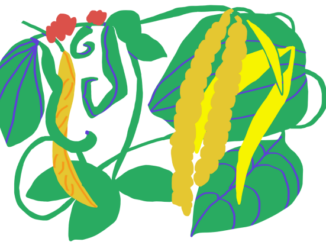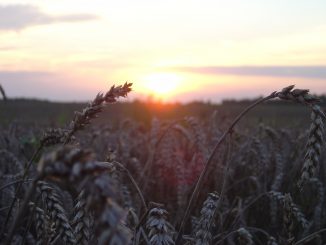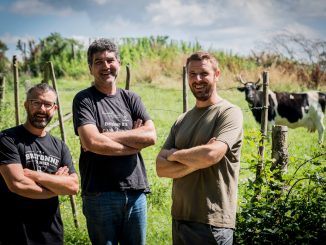“We invite you to listen, understand each other, share, dream contribute, enjoy and act to change and improve our societies.” With these words of Forum Synergies’ Philippe Barret, so began three days of deep engagement by a wide range of actors in the Greek mountains last Thursday 18th May.
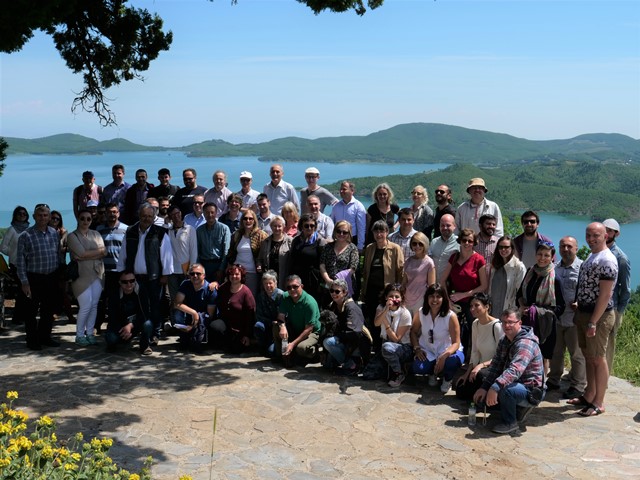
With the looming context of the fourth Greek bailout, the European Rural Sustainability Gathering 2017 kicked off in in Karditsa, Greece, last week. The event saw the social economy, cooperatives and grassroots initiatives take centre stage, as tools and approaches to address the crisis. The location displayed the best of progressive rural development, the methods employed were aptly mixed, and the participants came away very energised. Here we explore one element of the days in mountainous Greece – crisis, problems and solutions.
Certainly, the crises are manifold -from migrant/refugee to economic to ecological – but a number of grassroots and bottom up approaches have emerged. what’s more, they were contextualised and connected up with each other in noteworthy ways.
Problems facing Europe and the world, as well as a range of solutions were outlined at the gathering’s opening. Participants presented and then placed photos that represented their ideas onto the wall.
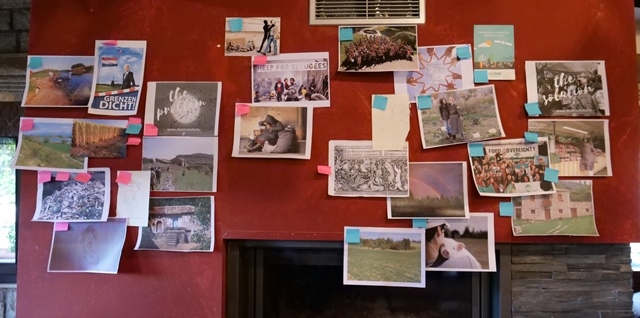
Out-migration from and general de-population of rural areas was cited as a major problem by many of the 80 participants from 20 countries. Rural sociologist Maria Partalidou refereed to “hidden homelessness”, whereby young families return to their rural family homes out of necessity.
The benefits of an inclusive, welcoming countryside, where different ages and backgrounds can work together emerged as source of hope – against the voices that encourage boarders and walls. Rural areas can work to welcome refugees, to fight climate change, to bring about better food security and food sovereignty, it was noted.
Ways to “hack loneliness” – Pavlos Georgiadis – were presented, which included community supported agriculture and the use of affordable technology to build agroecological communities.
An especially strong element that emerged was the ecosystems approach pioneered in the Karditsa region itself. Here, collaborative institutions frame more robust approaches to how rural spaces can and should function. Taken together, an integrated approach to rural development has much potential help society transition to a more sustainable place. And it was very noteworthy how many people from initiatives in this region made reference to “the ecosystem” – buy in is clearly very strong. In this, individual entities like energy co-ops, farmer co-ops producing specialised products, rural tourism initiatives can all be part of something bigger than the sum of its parts, with its own collective momentum.
Vasileios Bellis of the Development Agency of Karditsa explains “since the economic crises, which began in 2008, there has been a severe shortage of capital. There is no foreign capital invested in Greece. Local businesses have no cash, neither do the banks. The state has nothing to invest either. So we’ve tried something different in Karditsa. We are collaborating more, having developed an ecosystem of collaborative institutions.”
The Development Agency has managed and implemented a budget of almost E30 million over three LEADER phases.
Crucially, this ecosystem includes the establishment of a credit union, which is now a fully fledged cooperative bank. This is lending to local initiatives even in these straightened times. It is both a Greek financial success story, and more socially engaged than a typical bank: for example, newly established farmers’ coops with innovative ideas on crops, products and markets, from stevia to superfoods, are among those supported. This is quite an achievement in the Greek economic context.
Many different ways to engage people at #ERSG17 pic.twitter.com/E5Dfa5077w
— ARC 2020 (@ARC2020eu) May 20, 2017
When addressing the session “sustainable development in times of crisis” some interesting solutions emerged. Anastasia Vasileiadou is with seed saving organisation Peliti and the organic oregano farm Aetheleon. She made reference to farmers being too dependent on subsidies and expensive inputs from Multi National Organisations. However help is at hand with Peliti, which “tries to help farmers be more self-sufficient, using a different model”. Peliti emphasise the local economy and traditional, well adapted seeds, seed saving and sharing and building soil quality.
Yiorgos Psychas of Iliosporoi (sunflower seed) emphasised development via non formal education, de-growth, transition, land as a common possession and responsibility, and, more deeply, access to land and working the land.
Fouli Papageorgiou of the Euracademy Association pointed out that, on the one hand, Greek holdings were small, fragmented due to subdivision and unproductive: but on the other, landgrab is happening in Grecce and elsewhere. Smallholdings and family farms are the reality, and there are opportunities to employ immigrant populations. Moreover, agriculture did not suffer in the same way as the other sectors in the Greek economy, rural unemployment is not as severe as urban, while there are some positives to young people returning to home farms. They often bring new ideas and skills, whether in energy, farming or other areas. While there is still underemployment, co-ops can help bring small holdings together in useful ways.

These framing positions were both agreed with and in part critiqued – as they should be at dynamic events. Participants pointed out that there is a severe lack of data, and that data is often misleading: there are no figures on organic farming since 2010, it was claimed, while others pointed out that women owners of farms are often in name only. The need for co-ops to go deeper than just a single product focus was also emphasised – more agroecological and regenerative, holistic approaches were highlighted. Inter-generational justice was also spotlighted – young people lead in business in other parts of Europe, but not in Greece, contributors claimed.
There was a real eagerness to work on these imperatives. Over the three days, people also clustered for discussions as proposed by enthusiasts such as the crisis as an opportunity, the third agricultural revolution, transitioning a region to agroecology, traditional plant knowledge and uses and more.
Another approach taken to problem-solving could be experienced in the art and tools sessions. Here, a wide range of ways to engage with each other – in fun, creative ways – were showcased. These included Salsa, Art, Qi Gong and Pottery.
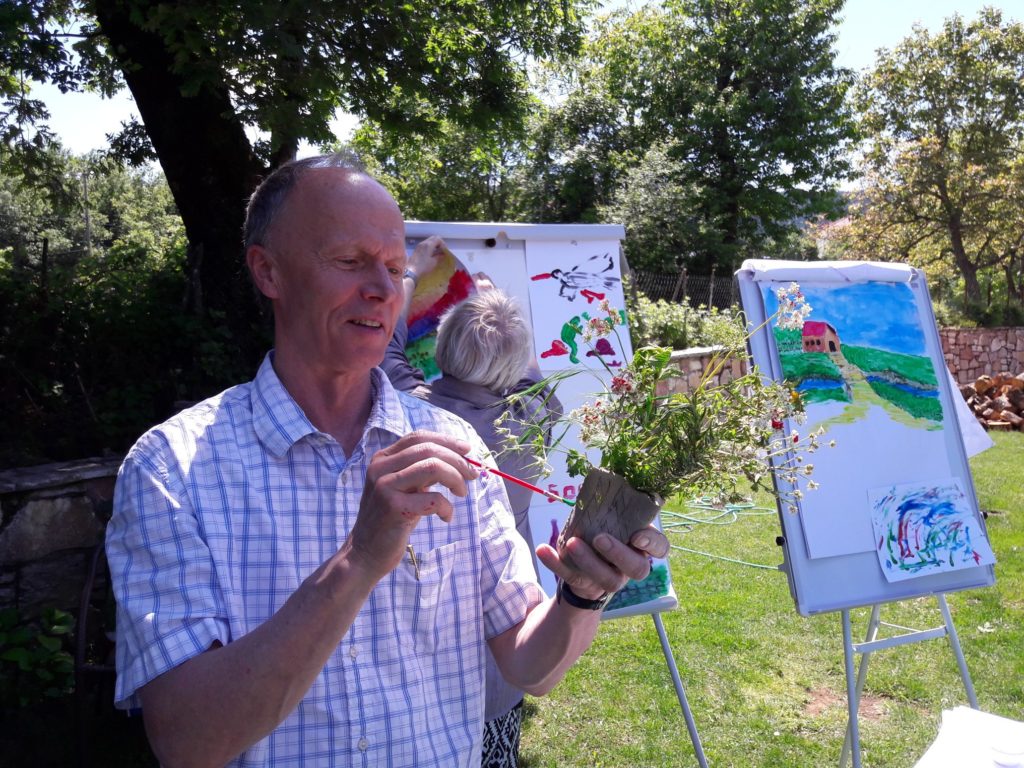
There was more to these three days, as you’ll see in the coming days and weeks here on the ARC2020 website. Undeniably, there is a long and deep seated crises in modernity – its not just economic it didn’t just start in 2008. And Greece is stuck it seems in an ongoing tragedy of bailout after austerity after bailout – with real human consequences.
But even as the seeds to our crisis – or more aptly, crises – were sown, so too have resilient and resourceful approaches emerged, at multiple levels. There is much to be said for bringing people together to, in novels ways, think about things differently by spending time with each other respectfully. Greece, birthplace of so much we look to for inspiration throughout history, is showing its ingenuity today too.
More
GROW grows its grassroots in Greece



